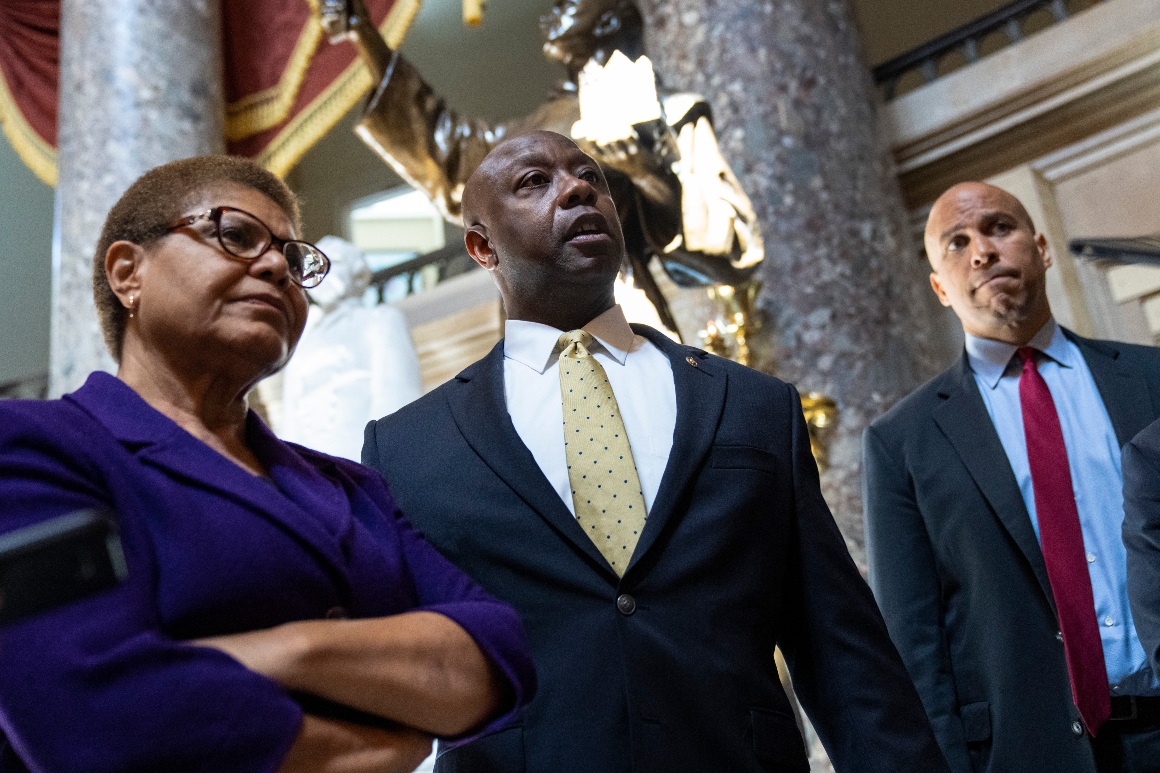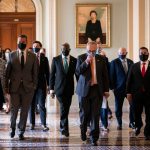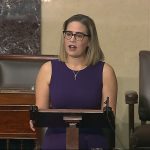The bipartisan police reform talks have officially collapsed.
The end to the discussions comes after Sens. Cory Booker (D-N.J.) and Tim Scott (R-S.C.) and Rep. Karen Bass (D-Calif.) spent months trying to reach an agreement with little progress. The negotiators had moved their self-imposed deadline for coming to a deal several times, but the differences between both sides ultimately proved too vast.
Among the key sticking points was reforming qualified immunity, which shields police officers from civil liability for misdeeds. Negotiators hit a stalemate on that provision and ultimately decided to take it off the table and focus on a “slimmed down” version of the legislation. But even that proved too difficult.
“After months of exhausting every possible pathway to a bipartisan deal, it remains out of reach right now, even after working collaboratively with and securing the support of policing groups,” Booker said Wednesday. “Unfortunately, even with this law enforcement support and further compromises we offered, there was still too wide a gulf with our negotiating partners and we faced significant obstacles to securing a bipartisan deal.”
Booker added that “the time has come to explore all other options to achieve meaningful and common sense police reform.”
The failed bipartisan negotiations almost certainly close the door on police reform this Congress, absent changes to Senate rules. Earlier this year, the House passed a sweeping police reform bill named after George Floyd, a Black man who was killed by a Minneapolis police officer last year. But that legislation has no chance of getting 10 Republican votes in the Senate.
Bass, the lead House Democrat negotiator, confirmed the "talks are over" and blamed police unions’ infighting in part for the failure.
“It wasn’t like there was a big fight. It wasn’t like there was a big rupture," she said. "But at a certain point, you have to recognize that you’re just spinning your wheels."
Bass called on the Biden administration to step in and take action to reform policing “to the full extent they can.”
“Whether that’s an executive order, whether that’s issuing instructions, whatever they can do, we need the administration to act now, because we don’t have any particular faith or hope that we will be able to get reforms passed,” she said.
Last week, the Justice Department announced a series of reforms for federal law enforcement overseen by the department, banning the use of chokeholds and no-knock entries for officers unless use of force was authorized. Police reform negotiators had attempted to include similar reforms in their legislation, though their provisions would have included a broader range of law enforcement.
The Wall Street Journal was the first to report the end to the police reform discussions.



















